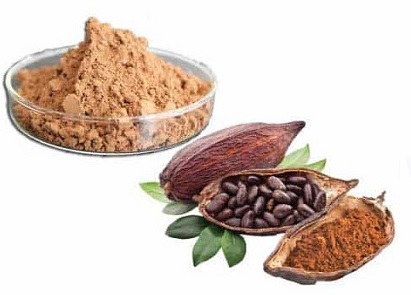Anti-Aging News: Study By Massachusetts General Hospital Shows That Cocoa Extract Supplements Help In Promoting Cognitive Prowess In The Elderly!
Nikhil Prasad Fact checked by:Thailand Medical News Team Dec 08, 2023 2 years, 2 months, 5 days, 19 hours, 39 minutes ago
Anti-Aging News: In the ongoing pursuit of strategies to mitigate cognitive decline in aging, a recent study led by researchers from Massachusetts General Hospital has brought cocoa extract supplements into the spotlight. Dr Chirag Vyas, Dr Olivia I. Okereke, Dr Howard Sesso, and Dr JoAnn Manson spearheaded the investigation, focusing on the potential cognitive benefits of cocoa extract among the elderly. Published in the American Journal of Clinical Nutrition, the study, named the Cocoa Supplement and Multivitamin Outcomes Study (COSMOS) that is covered in this
Anti-Aging News report, adds nuance to our understanding of how cocoa extract supplementation may influence cognitive function, particularly in the context of individuals with varying diet qualities.
 Cocoa and Cocoa Extracts
COSMOS Study Overview
Cocoa and Cocoa Extracts
COSMOS Study Overview
The COSMOS study, a colossal initiative led by Brigham and Women's Hospital, enrolled over 21,000 participants aged 60 and above from diverse backgrounds across the United States. This extensive, randomized, double-blinded, placebo-controlled trial aimed to explore the preventive effects of daily supplements - specifically, cocoa extract or a common multivitamin - on major health outcomes, including heart disease, stroke, and cancer.
Cognitive Findings and Nuanced Insights
The primary focus of the study was on the cognitive effects of daily cocoa extract supplementation, specifically delivering 500 mg per day of cocoa flavanols, with 80 mg of (–)-epicatechin. The results of comprehensive neuropsychological assessments conducted over a two-year period yielded intriguing insights. On the whole, cocoa extract supplementation did not demonstrate statistically significant benefits for global or domain-specific cognitive function. However, secondary analyses unveiled a nuanced relationship between diet quality and cognitive advantages.
Diet Quality as a Differentiator
The pivotal revelation from the COSMOS study was the role of diet quality in influencing cognitive outcomes. While the overall cognitive benefits of cocoa extract were not pronounced, participants with lower habitual diet quality experienced notable cognitive improvements. In contrast, those with already healthy dietary patterns at the study's commencement did not exhibit significant cognitive enhancements.
Consistency with Prior Research
The study's findings align with earlier investigations, strengthening the case for context-dependent cognitive benefits of cocoa extract. Previous research, conducted as part of COSMOS with web-based cognitive assessments on a separate set of participants, exhibited similar patterns. This consistency underscores the importance of considering individual baseline factors, such as diet quality, when assessing the cognitive impact of cocoa extract supplementation.
A more in-depth analysis of the abstract provides a detailed overview of the study's metho
dology and outcomes. Engaging 573 older adults who underwent in-person cognitive testing, the study sought to explore the impact of daily cocoa extract supplementation on cognitive change over a two-year period. While the primary outcome revealed no overall cognitive benefits, subgroup analyses hinted at potential advantages for those with poorer baseline diet quality.
Significance in the Aging Population
As the global population ages, addressing cognitive decline and preserving mental acuity becomes increasingly critical. Adults aged 65 and older face a heightened risk of Alzheimer's disease and related dementias, necessitating interventions that target early signs of cognitive decline. The study's focus on cocoa extract, with its flavanols, theobromine, and caffeine content, positions it as a promising candidate for nutrient supplementation to support late-life cognition.
Challenges in Previous Research
Despite the positive associations observed in epidemiological studies between cocoa product consumption and various health outcomes, previous randomized clinical trials investigating the cognitive effects of cocoa extract have produced inconsistent results. Notably, two larger-scale RCTs conducted as part of COSMOS - COSMOS-Mind and COSMOS-Web - suggested no overall cognitive benefits.
However, the current study, distinguished by its use of in-person neuropsychological assessments, offers granularity and depth in understanding cocoa extract's potential cognitive benefits.
Conclusion
In conclusion, the Massachusetts General Hospital-led COSMOS study provides a nuanced perspective on the cognitive benefits of cocoa extract supplements among the elderly. While the overall impact on cognitive function may not be universal, the study reveals a potential avenue for enhancing cognition in individuals with lower diet quality. As research in this field advances, the interplay between diet, supplementation, and cognitive health promises to unlock new possibilities for aging gracefully and maintaining cognitive prowess in the twilight years of life. The findings underscore the importance of personalized approaches in addressing cognitive health in the aging population and open avenues for further exploration into the intricate connections between diet, supplements, and cognitive resilience.
The study findings were published in the peer reviewed American Journal of Clinical Nutrition.
https://www.sciencedirect.com/science/article/abs/pii/S0002916523662756
For the latest
Anti-Aging News, keep on logging to Thailand Medical News.
